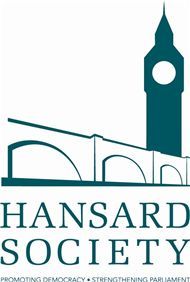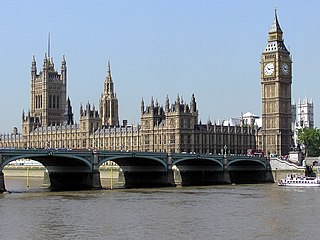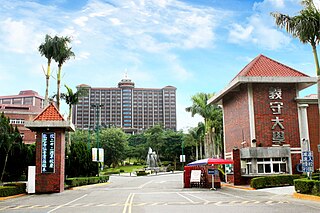
The United Nations Information and Communication Technologies Task Force was a multi-stakeholder initiative associated with the United Nations which is "intended to lend a truly global dimension to the multitude of efforts to bridge the global digital divide, foster digital opportunity and thus firmly put ICT at the service of development for all".
The following list outlines the structure of the federal government of Canada, the collective set of federal institutions which can be grouped into the legislative, executive, and judicial branches. In turn, these are further divided into departments, agencies, and other organizations which support the day-to-day function of the Canadian state.

The Secretariat of the European Parliament is the administrative body of the European Parliament headed by a Secretary-General. It is based in the Kirchberg district of Luxembourg City and around the Brussels-Luxembourg Station in Brussels and employs around 4,000 officials.

The Hansard Society was formed in the United Kingdom in 1944 to promote parliamentary democracy. Founded and chaired by Commander Stephen King-Hall, the first subscribers were Winston Churchill and Clement Attlee. The society's co-presidents are the Speaker of the House of Commons, Sir Lindsay Hoyle, and the Lord Speaker, Lord McFall of Alcluith, and the vice-presidents are the leaders of the Labour, Conservative and Liberal Democrat parties. The society is named after the Hansard parliamentary record, which publishes the proceedings of the British parliament.

The National Assembly of the Republic of Kenya is one of the two Houses of the Parliament of Kenya. Between 1966 and 2013, it served as a unicameral house. In 2013, it became the lower house when the Senate was reestablished.

The Parliamentary Office of Science and Technology (POST) is the Parliament of the United Kingdom's in-house source of independent, balanced and accessible analysis of public policy issues related to science and technology. POST serves both Houses of Parliament.
The Public Administration and Constitutional Affairs Select Committee, previously known as the Public Administration Select Committee, is a committee designated by the British House of Commons. Its purpose is to scrutinize reports from the Parliamentary and Health Service Ombudsman, address issues pertaining to the quality of administration delivered by civil service departments, and explore various matters concerning the civil service, primarily in England and Wales, as well as constitutional affairs.
Simon David Finn is a Labor Party politician who represented the seat of Yeerongpilly in the Legislative Assembly of Queensland from 7 February 2004 to 24 March 2012.

I-Shou University is a private university in Dashu District, Kaohsiung, Taiwan. Formerly known as Kaohsiung Polytechnic Institute, ISU was established in 1986 by I-Shou Lin, the founder of E United Group, to commemorate his mother as well as to benefit the villages and towns where he started his business. KPI was officially renamed I-Shou University on August 1, 1997.
Robbie the Pict, also known as Brian Robertson is a Scottish campaigner and former Scottish Parliamentary candidate for the Highlands and Islands.

Deborah Bergamini (born 24 October 1967) is an Italian politician, manager and journalist currently member of the Italian Parliament.
The European Centre for Parliamentary Research and Documentation (ECPRD) is a parliamentary network which was founded in 1977.
The European Technology Assessment Group (ETAG) is a cooperative network of scientific institutions that carries out studies in the field of technology assessment on behalf of the European Parliament.

Viktor Vasylyovych Bondar is a Ukrainian politician, a member of Ukrainian parliament of the 7th and 8th and 9th convocations, the Minister of Transport and Communication of Ukraine (2005–2006), and the Head of Dnipropetrovsk Regional State Administration (2007–2010).
Pict or PICT may refer to:
Robin Williams is a British social scientist who is Professor of Social Research on Technology at the University of Edinburgh, Scotland, and director of the Institute for the Study of Science, Technology and Innovation. He is an interdisciplinary researcher in the field of Science and Technology Studies and contributed much to the social shaping of technology by studying the interplay between 'social' and 'technical' factors in the design and implementation of a range of technologies.
Intelegis is a program of the Brazilian State, funded by the Inter-American Development Bank (IADB) and administered by the Federal Senate of Brazil. Its mission is to integrate and modernize the Brazilian Legislative Power, in Municipal, State and Federal levels. It started in 1997 in the Brazilian Senate Data Processing organ - Prodasen, born from the PhD project of Armando Roberto Cerchi Nascimento, an official of that body. In 1999 the Brazilian Government signed the contract, establishing a partnership between the IADB and the Brazilian Senate, initiating the Interlegis Program, which was divided into 3 phases: e-Parliament, e-Government and e-Democracy.

Judith Nalule Nabakooba is a Ugandan politician and former policewoman. She is currently the Minister of Lands, Housing and Urban Development, in the Cabinet of Uganda. She was appointed to that position on 8 June 2021.
The European Parliamentary Research Service (EPRS) is the in-house research department and think tank of the European Parliament, providing research and analytical support to the members of the European Parliament, its parliamentary committees and the Parliament as a whole. It was created in November 2013 as a directorate-general within the Parliament's permanent administration. The EPRS philosophy is to provide independent, objective and authoritative analysis of, and research on, policy issues relating to the European Union, in order to assist Members in their parliamentary work.
In Australia, there are four parliamentary departments that provide advice and support to both Houses of the Australian Parliament, their members, committees as well as services to Parliament House, including visitors. The parliamentary departments operate under the Parliamentary Service Act 1999 and report only to one or both of the presiding officers of the Australian Parliament — the President of the Senate and the Speaker of the House of Representatives — who in turn are responsible for the departments to their respective house of parliament. Employees of these departments constitute the Australian Parliamentary Service, which is not part of the Australian Public Service. The parliamentary departments are independent of the Australian Government, though the Merit Protection Commissioner provides employment services to both services on an equivalent basis.








